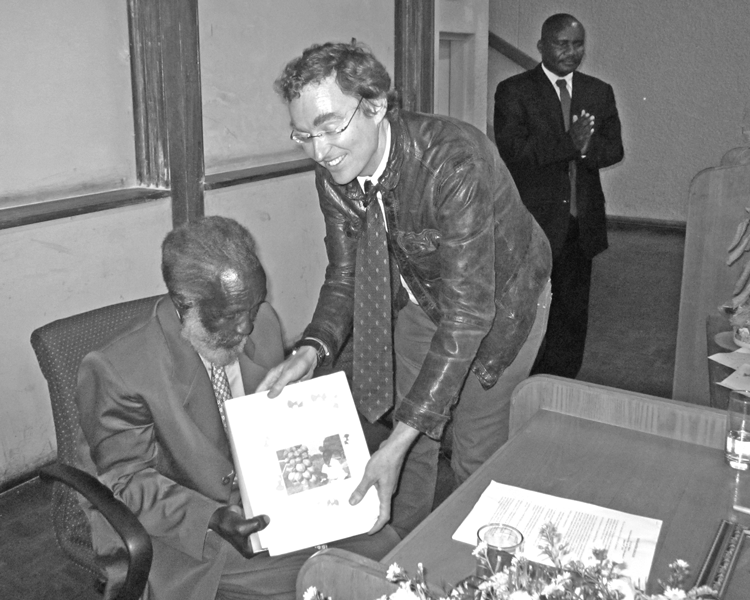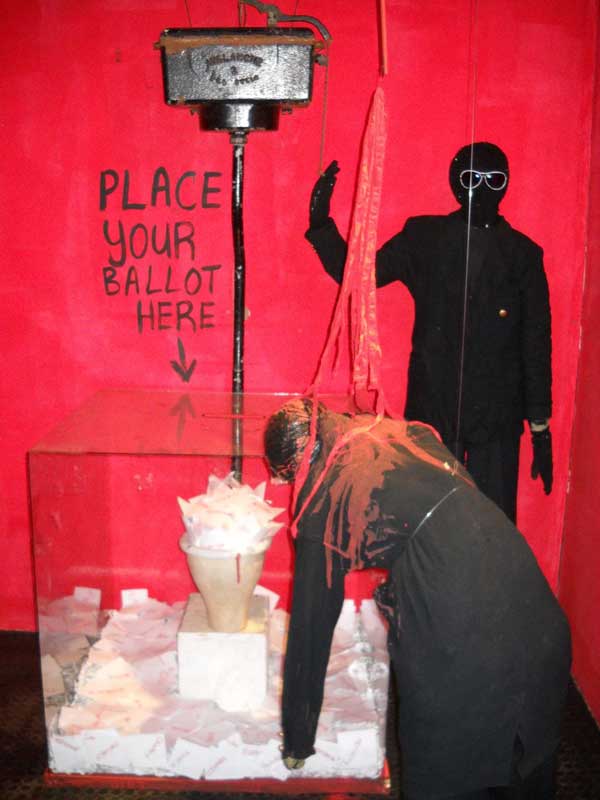The Uncertainty of Hope: A book that reminds us who women are in Zimbabwe
Monday, September 13th, 2010 by Fungai MachiroriI don’t usually read a book and feel compelled to write about it.
But in the case of Valerie Tagwira’s splendid novel, ‘The Uncertainty of Hope’, I simply must.
The first time I heard about this novel was in 2006 when a visiting Danish friend doing her PhD research around Zimbabwean gendered discourse presented it to me during one of our lively discussions. This friend also had Tsitsi Dangarembga’s much-anticipated second book, ‘The Book of Not’ and in my excitement to lay hands on it, I chose the latter as my reading fodder instead.
And because I’d never really heard much about ‘The Uncertainty of Hope’ – or its author – I somehow never got round to reading it.
Over the last year however, I have managed to forge a good cyber friendship with Tagwira who always encourages me on to get my first novel completed – I’ve found her to be very gentle yet incisive in everything she says.
And it somehow gnawed away at me that I had never ventured into her own literary mind by reading her book. What, I wondered, did a practising medical doctor’s prose talk about?
And so last week I bought my copy of ‘The Uncertainty of Hope’ to find out.
What an amazing piece of literature!
If ‘Nervous Conditions’ was the narrative of womanhood and its myriad challenges for our newly independent Zimbabwe, then Tagiwra’s novel is the dominant gendered text for our nation’s 2000s – a time of social, political and economic crisis.
The novel’s protagonist, Onai, is a woman who suffers many dilemmas in her roles as wife, mother, breadwinner and ordinary Zimbabwean living through the harsh times of 2005 – where hyperinflation, queues for scarce commodities and the deathly effects of the misguided Murambatsvina operations colour the hopelessness of a once prosperous nation.
Onai, is also a victim of gross domestic violence and lives out an existence that is almost admirable in its absorption of so much pain and disappointment.
And what Tagwira does so well is to mirror her main character’s life against other women whose struggles are excruciating to various extents – Melody, the third year university student who is sleeping with a married man to raise her fees as well as get a taste of the life her family can’t afford; Emily, the compassionate doctor who’s torn, like many potential Diasporans, between obeying her conscience and staying home, and departing overseas to receive second-class treatment while earning enough to live comfortably; and Sheila, the sex worker who’s contracted HIV and worries about her young child’s future without a mother because long waiting lists bar her from getting access to life-prolonging ARVs.
This novel may be set during a particular era in our history – a time when we were all once meaningless millionaires – but it still speaks to the issues that affect Zimbabwe’s women five years later.
And Tagwira definitely understands the subject matter well. Many passages in this 363-page journey had my skin swelling up in goose bumps because yes, here is a woman who speaks about the things we are not often too ready to acknowledge, and therefore address.
Here is one such passage which takes place early in the novel as Onai encounters a wave of depression due to the fact that no one understands why she cannot leave her abusive husband:
She would not be able to bear the shame of being a divorced woman. How could she possibly face a world that despised divorcees; looked down on single mothers? Marital status was everything. It did not really matter how educated or otherwise skilled a woman was. A woman’s worth was relative to one man, her husband: westernised values about women surviving outside marriage held no authenticity mumusha (in the home). In her whole extended family, nobody had ever had a divorce. She would not let herself be the first.
This book is not a patchwork of fanciful writing. It is gritty, heart-wrenching, enlightening, warming – and all carefully controlled by a credible and clever storyline that allows for the forces of life to bring together, as well as separate, its various characters.
I wonder, sadly, why Tagwira has not received the same acclaim for this breathtaking tale as have the Dangarembgas, Gappahs and Veras of our women’s writing world.
What a massive pity.
I only hope though that by your reading this short account of my experience, which I sadly can’t provide all the finer details of (lest I begin to ramble!), you too will pick up if this amazing novel if you have not already.
So many discussion points, innumerable advocacy issues, a whiff of the pungency of a decadent and decaying Zimbabwe – and all in well-written and engaging prose.
You simply must read this book and crown a true Zimbabwean heroine.











